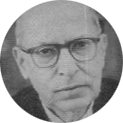K.N. Wanchoo

K.N. Wanchoo
Former Chief Justice of India
Assumed Office24th Apr, 1967
Retired On24th Feb, 1968
Previously
Chairman, Commission of Inquiry, corruption in West Bengal1974-1975
Chairman, Direct Taxes Committee1970-1972
Chairman, Board of Arbitration, Ministry of Labour1968-1975
Chairman, Railway Accidents Inquiry CommitteeApril 3rd, 1968-August 31st, 1969
Post reorganisation of states, Chief Justice, Rajasthan High CourtNovember 1st, 1956
One of two High Court Judges to be appointed to first post-independence Law Commission of IndiaSeptember, 1955
Chairman, Dholpur Succession Case Commission1955
Sole member, Indore Firing Inquiry Commission1954
Leads Union commission on the implications of instituting new state of Andhra PradeshJanuary, 1953
Chief Justice of Part B High Court of RajasthanJanuary 2nd, 1951-October 31st, 1956
Chairman, Uttar Pradesh Judicial Reforms Committee1950 - 1951
Confirmed as permanent Judge at Allahabad High CourtDecember 12th, 1947
Appointed as acting Judge at Allahabad High CourtFebruary 17th, 1947
Confirmed as Sessions and District Judge, United ProvincesSeptember, 1937
Officiating Sessions and Civil Judge, United ProvincesOctober, 1930
Assistant Magistrate and Collector, United ProvincesOctober 22nd, 1926
Passes Indian Civil Service examination1924
Profile
Justice Kailas Nath Wanchoo served as the 10th Chief Justice of India. He bears the distinction of being the only non-lawyer and only officer of the Indian Civil Service (ICS) to serve as Chief Justice.
Born on February 25th, 1903, in Mandsaur (in present-day Madhya Pradesh), Wanchoo was the first Judge in his family. After passing the ICS exams in 1924, he travelled to the United Kingdom to complete his two-year training. Wanchoo J was not a lawyer by education—much of his initial legal knowledge stemmed from the criminal law taught during his ICS training sessions.
Wanchoo J returned to India in 1926 and was first stationed in the United Provinces (or modern-day Uttar Pradesh and Uttarakhand) as an Assistant Magistrate and Collector. He rose up the ranks over the next decade—by 1937, he was confirmed as Sessions and District Judge in the United Provinces. In 1947, he assumed the role of acting Judge at the Allahabad High Court. Initially filling in for a colleague from the ICS on leave, Wanchoo J was made permanent just ten months later.
On January 2nd, 1951, Wanchoo J was appointed as Chief Justice of Part B Rajasthan High Court. After the reorganisation of states in 1956, he assumed the office of Chief Justice of the Rajasthan High Court on November 1st, 1956. He served in this position until he was appointed as a Judge at the Supreme Court on August 11th, 1958.
Ten years later, post K. Subba Rao CJI’s abrupt resignation on April 11th, 1967 to run for the President of India, Wanchoo J was appointed Chief Justice on April 24th, 1967. He would serve in the position for only ten months, eventually retiring on February 24th, 1968.
While at the Supreme Court, Wanchoo J authored 355 Judgments and sat on 1,286 Benches. He has been cited in 326 Judgments.
Wanchoo J primarily adjudicated on matters of labour, constitutional law, and property law.
Notable Judgments
I.C. Golaknath v State of Punjab (1967)
Justice Wanchoo delivered a firm dissent in I.C. Golaknath v State of Punjab (1967). In Golaknath, the Court held that Parliament did not have the power to amend Part III of the Constitution which details the Fundamental Rights. Through this Judgment, Chief Justice Subba Rao introduced the ‘doctrine of prospective overruling’ to the Court’s jurisprudence. In his dissent, Wanchoo J emphasised that Parliament has the power to amend all parts of the Constitution and that the doctrine of prospective overruling cannot be applied. Golaknath was subsequently overruled in Kesavananda Bharati v State of Kerala (1970).
General Manager, Southern Railways v Rangachari, (1961)
In General Manager, Southern Railways v Rangachari, the Court upheld the constitutionality of reservations in promotions provided under Article 16(4A) of the Constitution. Justice Wanchoo delivered a dissent where he emphasised that reservations in promotions cannot nullify the equality of opportunity guaranteed to citizens under Article 16. In his dissent, Wanchoo J also raised the possibility of reservations leading to inefficiency in administration.
Work Outside the SC
Active during the post-independence period, Wanchoo J found himself on many committees pertinent to the formation of the modern Indian State.
From 1950-1951, he served as Chairman of the judicial reforms committee for the erstwhile United Provinces.
The Telangana agitation demanded a separate state be carved out of the erstwhile state of Madras—this was the seed for modern-day Andhra Pradesh. Acknowledging the movement, in January 1953 former Prime Minister Jawaharlal Nehru called upon Wanchoo J to head a committee investigating the implications of creating this new jurisdiction. At the time Wanchoo was Chief Justice at Part B Rajasthan High Court—his appointment raised eyebrows over whether High Court Judges should be tasked with such issues, when they have little to do with their backgrounds.
In 1954, Wanchoo J led the one-man Inquiry Commission after the police opened fire on protesting students in Indore. In 1955, he was the Chairman of the Dholpur Succession Case Commission tasked with investigating a property dispute in Rajasthan. By September of the same year, Wanchoo J was one of two High Court Judges to be appointed to the first post-independence Law Commission.
Post-retirement from the SC, Wanchoo J was selected by the Ministry of Railways to serve as Chairman of the Railway Accidents Inquiry Committee, a post he held from April 3rd 1968 to August 31st 1969. Between 1968 and 1975 he was also Chairman of the Board of Arbitration at the Ministry of Labour. In 1970, chaired a Committee investigating how to offer safeguards for people from Telangana in public employment in Andhra Pradesh. Wanchoo J investigated tax evasion and forms of money laundering between 1970-1971 as Chairman of the Direct Taxes Inquiry Committee. Between 1974-1975, Wanchoo J once again led a one-man Inquiry Commission on corruption allegations levied against politicians in West Bengal.
Wanchoo J was succeeded by Justice Mohammad Hidayatullah on February 25th, 1968.
